Houseplants are not only beautiful to look at, but they can also bring a wealth of benefits!
According to NASA, they can aid your well-being by minimizing air pollution which can reduce stress, anxiety, and help with depression.
So which plants work best for your well-being and what should you choose?
Let’s start by checking out why plants are good for your health.
Why Are Plants Good For Your Health?
Plants are super air fresheners! They release oxygen but absorb carbon dioxide, carbon dioxide is what we breathe out. This symbiotic relationship can help to remove harmful toxins from the air, such as formaldehyde and benzene.
Other research has shown how surrounding your home with houseplants can boost your mood and also help you be more creative!
Plants can even help you stay alert and focused at work. Scientific studies have discovered that plants in the workplace reduce tension by a whopping 37% and can boost employees' performance along with their wellbeing.
“Plants are super air fresheners - they release oxygen but absorb carbon dioxide”
How Do Houseplants Support Health?
Many studies have shown how interacting with indoor plants may reduce psychological and physiological stress.
One particular study by the Journal of Physiological Anthropology describes how houseplants not only give us that glorious relaxing feeling of being surrounded by nature but also actively reduce autonomic nervous system activity.
Reducing this activity means that hormones likely to increase stress such as cortisol will be suppressed.
The same study went on to say plants can also lower what’s known as ‘diastolic blood pressure’, this is essentially the pressure on the walls of your arteries when your heartbeats.
By lowering this pressure, plants are able to soothe and promote feelings of relaxation.
“The same study went on to say plants can also lower what’s known as ‘diastolic blood pressure’
So let’s read on to discover 10 of the best indoor plants for health!
1. Lavender

Lavender oil is well known for its relaxing qualities. So it’s not surprising that a pretty lavender plant can also help to soothe and relax fractured nerves!
Keeping lavender next to your bed in an elegant minimalist aluminum pot, can lower stress and help to promote a restful night's sleep.
Its delicate fragrance and stylish botanical appearance will also add a style night to your surroundings!
Lavender is also perfect to keep in your children’s room to help them feel more calm and relaxed before bed.
It prefers to sit out of direct sunlight and doesn’t like sitting in pools of water, so it will need the occasional drink and make sure it gets a few hours a day of indirect sunlight.
2. Snake Plant

The snake plant not only looks super stylish with its minimalist green foliage and its modern design, but it also makes our 10 top ten houseplants for health for a reason!
According to Harvard University, it is one of the best plants for converting carbon dioxide into oxygen. It also helps to absorb toxins, as mentioned in the NASA research above, such as benzene and formaldehyde.
Their big long leaves are one of the main reasons why they are such a super-charged plant for health.
The thick spine-like leaves of the snake plant contain more photosynthesis cells which in turn convert more natural toxin-free fresh air!
It does really well in full sun or full shade, so it’s pretty happy wherever you place it in your home, and it only needs a very small amount of water too.
3. Tillandsia (Air Plants)

Tillandsias are not only a super modern, minimalist way to bring a touch of greenery to your space but can also help remove some of the chemicals found in vinyl, solvents, and even painted surfaces.
Air plants are also a little different from many other houseplants as they photosynthesize at night (turning carbon dioxide you breathe out, into oxygen). This can help to not only purify your surroundings but also replenish oxygen.
Air plants are native to humid areas like rainforests, but they can also successfully regulate the humidity in your home. Along with filtering airborne nasties like dust, air plants can help you recover a little more quickly from colds and sniffles.
Unsure about how to care for air plant? We've got you covered! Check out this blog post to learn about what air plants need to thrive.
4. Peace Lily
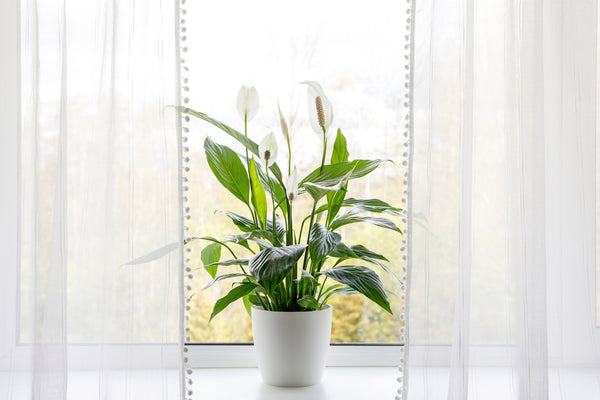
Peace Lilies are symbols of good health and are one of the most elegant house plants to interior design your space with greenery.
The dark green leaves and beautiful minimal white flowers are so elegant and just looking at this beauty is enough to lift a low mood!
The Peace Lily is also known to help filter out some of the airborne particles which are linked to some respiratory and other conditions such as asthma and headaches.
The Peace Lily is happy in low-lit areas and doesn’t require much in terms of full sun. It loves to say hydrated, but as with many of the best houseplants for health, it prefers not to sit in a pool of water.
5. Spider Plant

Spider plants are one of the easiest plants to care for, so straight away that means more plant happiness! All the joy of bringing the outside in, without the maintenance.
The spider plant has a classic green cascade of leaves that are perfect for hanging planters or even shelf styling.
Spider plants work well in a space that doesn't have much natural light. It also prefers the soil to be kept moist to keep it looking its best.
6. Aloe Vera

Along with the snake plant, this super health-giving plant has spiny large leaves which means it produces more oxygen than many other plants.
Along with its classic modern form, it’s not only a joy to look at, but it has some super healing properties too.
Aloe is fabulous for treating a sunburn (just squeeze a little from a leaf and apply it to burnt areas). It is also packed full of antioxidants which can benefit your digestive health. Its soothing skin properties mean it is useful to minimize skin complaints and also is good for oral and dental health.
7. English Ivy
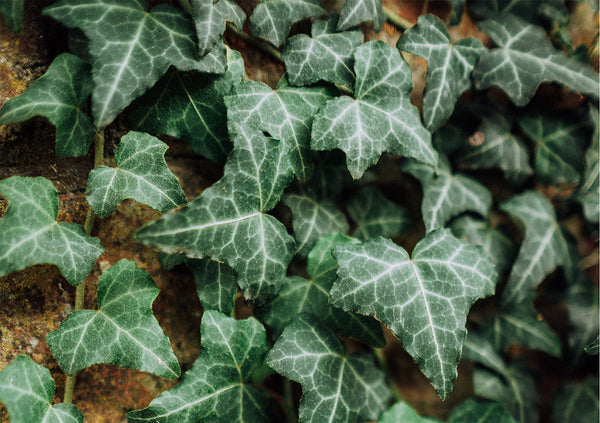
This elegant trailing plant is perfect for purifying the air. According to research, it can help to remove up to 94 percent of airborne mold that can trigger allergies and asthma.
Although it loves humidity, it’s extremely forgiving and thrives well even under electric lighting. It's also great for your bedroom! English Ivy will keep your sleeping toxin-free.
English Ivy likes moist soil and it is not a fan of direct sunlight.
“According to research, it can help to remove up to 94 percent of airborne mold.”
8. Boston Fern

The delicate fronds of the Boston fern are among the most ideal houseplant to bring into your home for their ultra humidifying properties.
Boston Ferns actually help put moisture back in the air! They excel in air-conditioned areas where you might suffer from issues such as dry skin.
The added bonus is they are fairly simple to grow and work well indoors as they prefer indirect sunlight. They love moist soils and cooler rooms.
9. The Dracaena Marginata

This attractive, minimalist houseplant, often referred to as a dragon plant is another super air-filtering houseplant.
It makes our list of 10 best houseplants for health for its natural air filtering properties and also the fact it’s just another easy-care houseplant.
This plant has a brilliant ability to spring back into life after it's been neglected. Just give it a little water and it will revive before your eyes!
It also helps to filter out toxins such as toluene which can be found in nail varnish and other types of solvents.
10. Philodendron

Anyone with a dust allergy will benefit from adding this stylish green houseplant into their home's decor!
It’s perfect in living areas where dust particles can build up from pets and humans!
It’s a dust attractor as it has large and almost tacky leaves which can trap the dust circulating in the air.
It helps to ease allergy symptoms while bringing a stylish addition to your houseplant collection!
And Finally…
Don’t forget to browse our store for a curated selection of the best plant hangers & plant stands for all your health giving houseplants!
Browse our collection of spun aluminum vessels in gorgeous neutral shades such as sand, salt, and snow.
AND get inspired with our wall mounted plant shelves that will definitely bring some life to your walls!


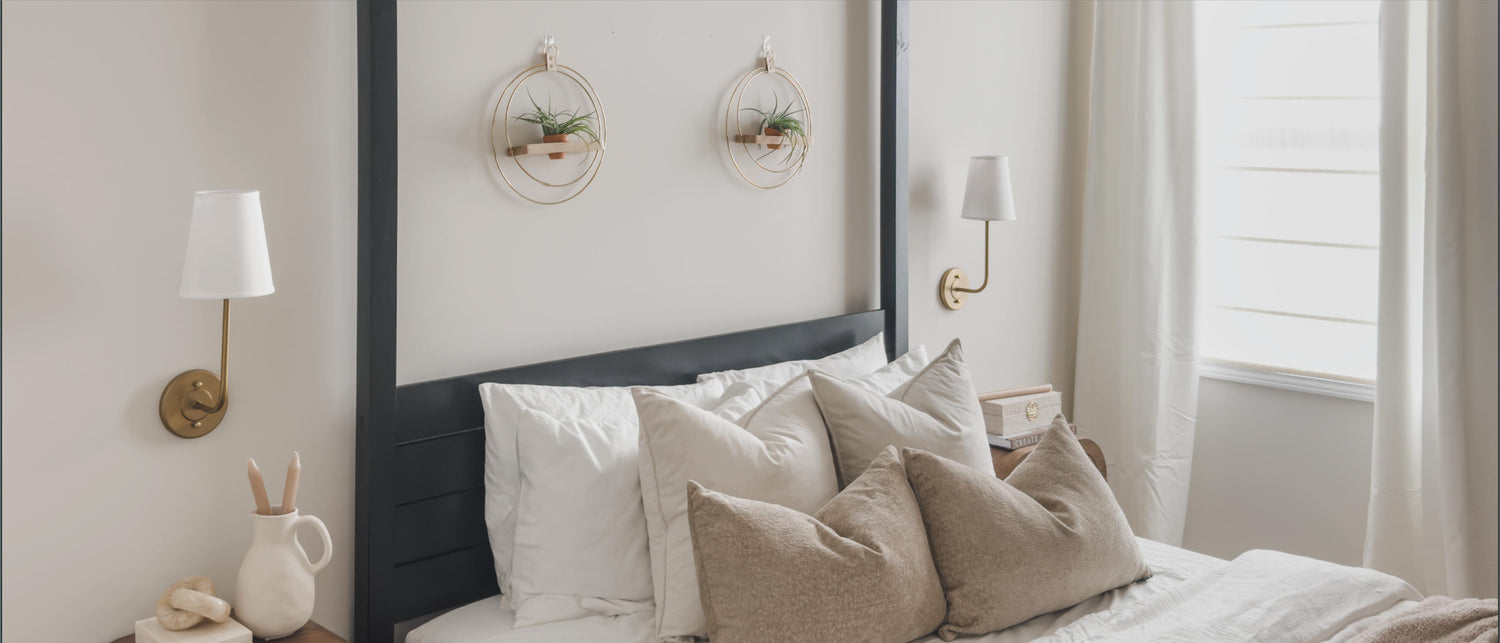
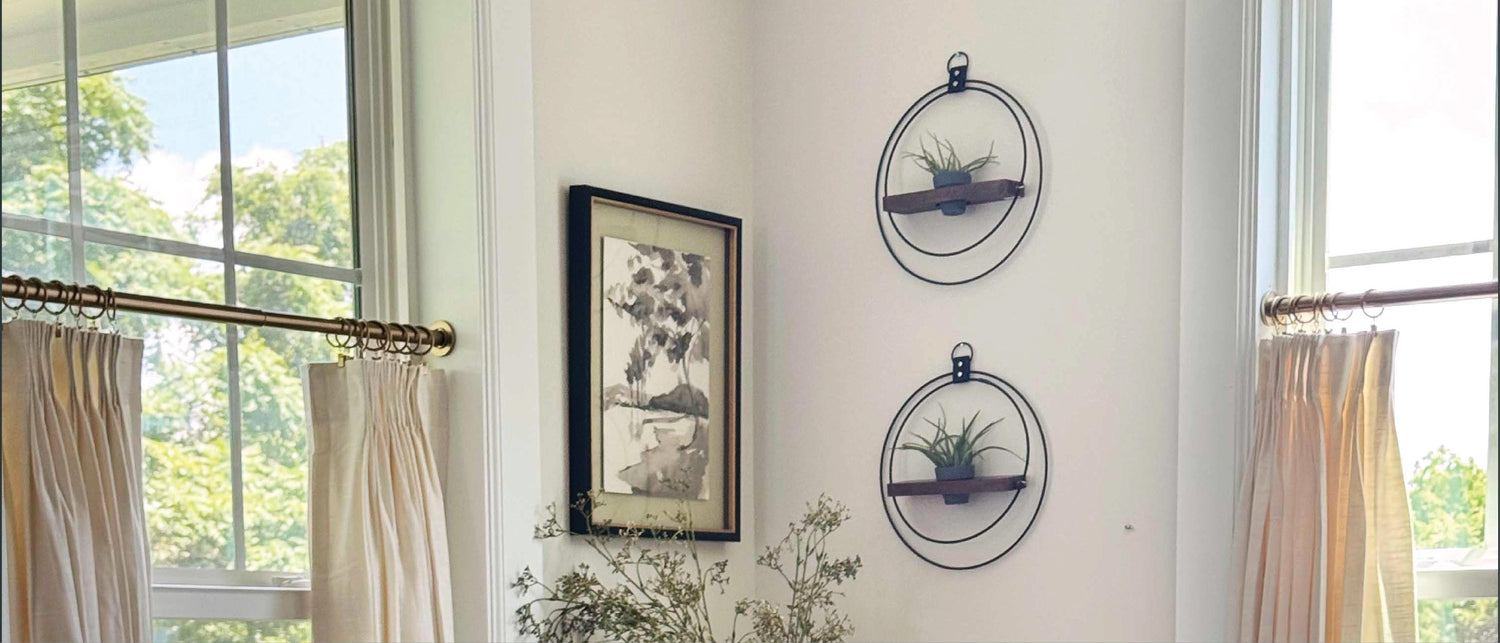
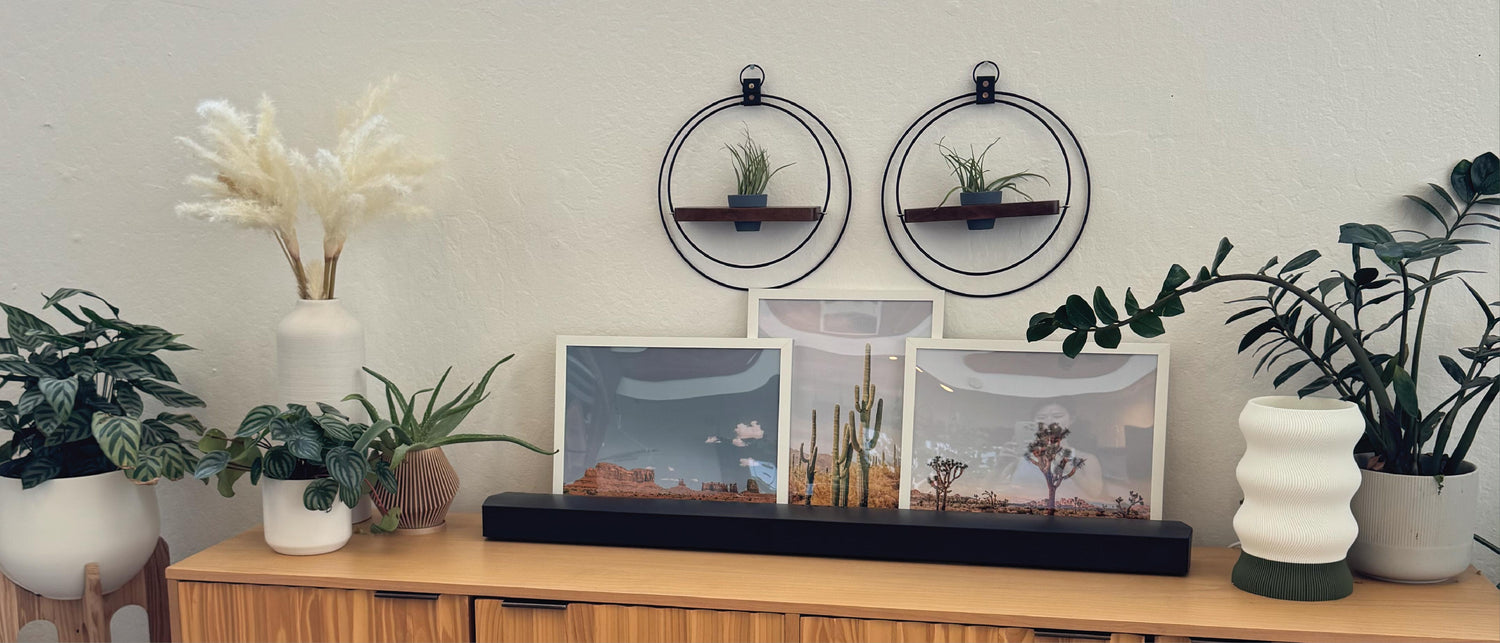
1 comment
Please indicate which plants are harmful to indoor pets, eg dogs and cats.